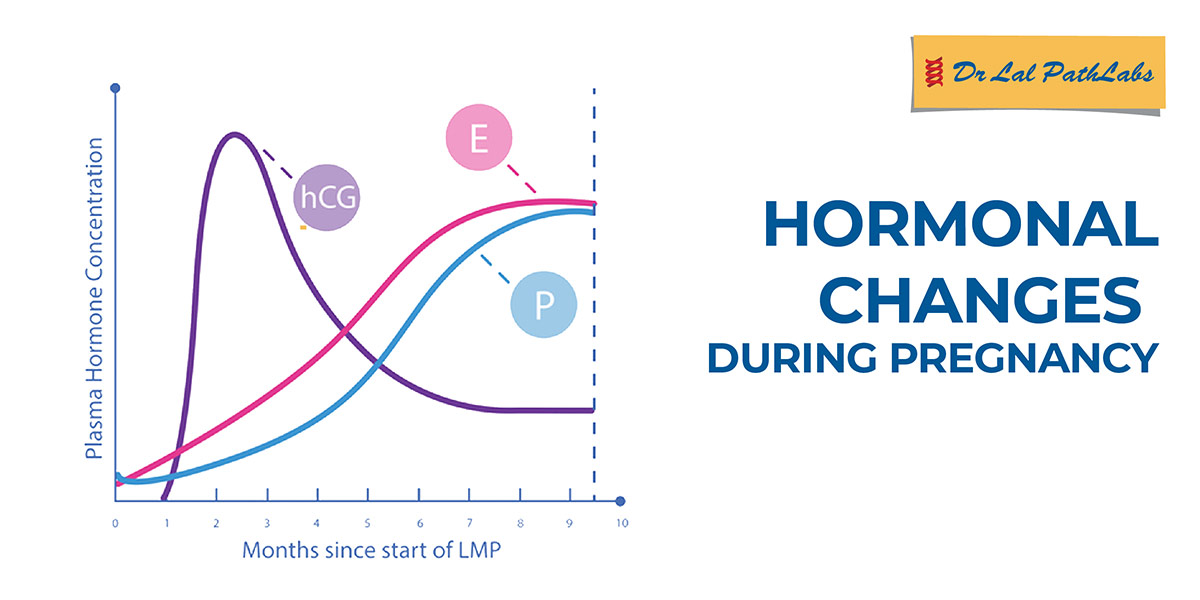
Hormonal Changes in Early Pregnancy
Pregnancy is a transformative journey that involves significant hormonal shifts. These changes are essential for supporting the growth and development of the fetus and preparing the mother’s body for childbirth. Understanding the hormonal changes that occur during early pregnancy can provide valuable insights into this remarkable process.
Human Chorionic Gonadotropin (hCG)
The first hormonal change that occurs in pregnancy is the production of human chorionic gonadotropin (hCG). This hormone is produced by the developing embryo and is responsible for maintaining the corpus luteum, a gland that produces progesterone. Progesterone is essential for maintaining the uterine lining and preventing menstruation.
hCG levels rise rapidly during the first trimester of pregnancy, peaking around 8-10 weeks. This surge in hCG is what triggers the positive result on a pregnancy test. As the pregnancy progresses, hCG levels gradually decline.
Progesterone
Progesterone is another key hormone involved in early pregnancy. It is produced by the corpus luteum and later by the placenta. Progesterone helps to thicken the uterine lining, relax the uterine muscles, and prevent premature contractions.
Progesterone levels rise steadily throughout the first trimester and reach their peak in the second trimester. They remain elevated until the end of pregnancy, when they decline in preparation for labor.
Estrogen
Estrogen is a group of hormones that play a crucial role in pregnancy. They are produced by the ovaries and later by the placenta. Estrogen helps to stimulate the growth of the uterus and breasts, and it also contributes to the development of the fetal reproductive organs.
Estrogen levels rise gradually throughout pregnancy, reaching their peak in the third trimester. They decline slightly before labor and then rise again after childbirth.
Other Hormones
In addition to hCG, progesterone, and estrogen, several other hormones are involved in early pregnancy. These include:
- Relaxin: This hormone helps to relax the ligaments and muscles of the pelvis, allowing the uterus to expand as the pregnancy progresses.
- Prolactin: This hormone is responsible for milk production after childbirth. However, it also plays a role in early pregnancy, helping to prepare the breasts for lactation.
- Thyroid hormones: These hormones are essential for the growth and development of the fetus. Thyroid hormone levels increase slightly during pregnancy to meet the increased metabolic demands.
Symptoms of Hormonal Changes
The hormonal changes that occur during early pregnancy can cause a variety of symptoms, including:
- Nausea and vomiting: This is a common symptom of pregnancy, particularly in the first trimester. It is thought to be caused by the increased levels of hCG and estrogen.
- Breast tenderness: The breasts may become tender and swollen due to the increased levels of estrogen and progesterone.
- Fatigue: The hormonal changes of pregnancy can lead to increased fatigue.
- Frequent urination: The increased levels of progesterone can cause the bladder to relax, leading to more frequent urination.
- Mood swings: The hormonal changes of pregnancy can also affect mood, causing mood swings and irritability.
Managing Hormonal Changes
Most of the symptoms of hormonal changes during early pregnancy are mild and will resolve on their own. However, there are some things that you can do to manage these symptoms, such as:
- Get plenty of rest: Fatigue is a common symptom of pregnancy, so it is important to get plenty of rest.
- Eat a healthy diet: Eating a healthy diet can help to reduce nausea and vomiting.
- Exercise regularly: Exercise can help to reduce fatigue and improve mood.
- Talk to your doctor: If you are experiencing severe symptoms, such as persistent nausea and vomiting, talk to your doctor. There are medications that can help to relieve these symptoms.
Conclusion
The hormonal changes that occur during early pregnancy are essential for supporting the growth and development of the fetus and preparing the mother’s body for childbirth. Understanding these changes can help you to better manage the symptoms of pregnancy and enjoy this special time in your life.